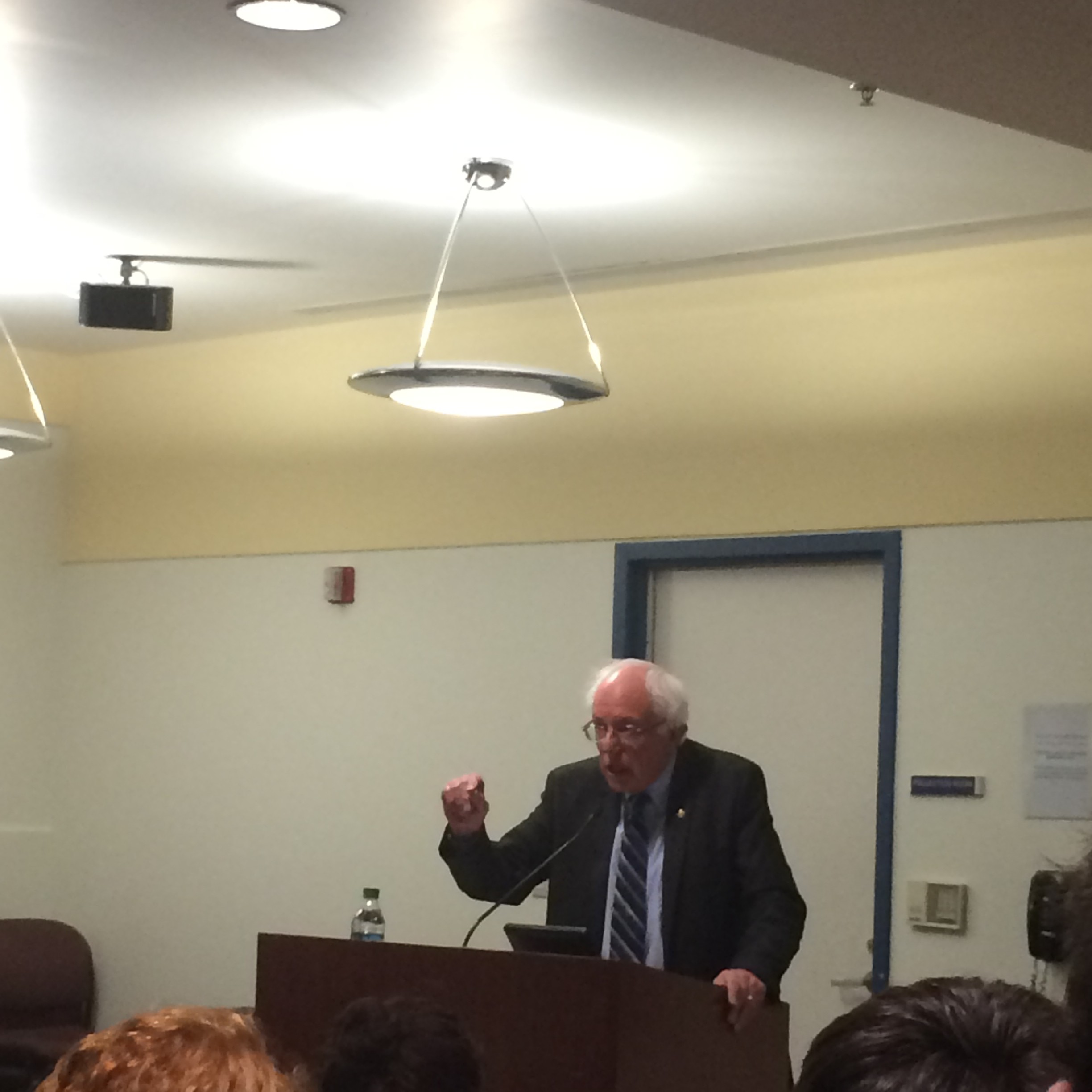Washington – Sen. Bernie Sanders said Monday that public colleges and universities should be tuition free for all students – a giant step beyond President Barack Obama’s recent call for a free ride at two-year institutions.
Sanders, a Vermont independent, told American University students he will introduce legislation to accomplish his goal and also offer graduates the chance to refinance loans and provide other incentives to defray skyrocketing costs of college.
“It’s not a radical idea,” Sanders said. “Forty to 50 years ago you could go to the best universities and tuition was virtually free.”
Not radical maybe, but costly at an estimated $70 billion a year. To pay for it, Sanders said he would raise taxes on the wealthiest Americans and corporations, and reduce military spending. Making college free would come at a price, he acknowledged, but “compared to a $4 trillion [federal] budget, it’s not much.”
“Is it mort important to make tuition free, or increase military spending?” Sanders asked the room full of 100 or so students at the private institution in Northwest Washington.
The staggering cost of higher education has forced some capable students to forego college for fear of the debt they would accrue. The average cost for tuition and fees in 2014 dollars in the 1974/1975 academic year was $2,469, compared to $9,139 for 2014/2015, rising by double digits percentage wise in every five-year period except one, according to the College Board.
Outsized college tuition is getting attention on Capitol Hill as politicians curry the favor of the millennial generation, 50 percent of whom voted in the 2012 mid-term election. Young voters were the deciding factor in four states, according to the Center for Research and Information on Civic Learning and Engagement at Tufts University.
The Sanders bill replaces a plan the senator introduced in February that would have cut college tuition at public colleges and universities in half.
In January, President Obama proposed free community college tuition for the two years. Sen. Elizabeth Warren. D-Mass., also in March reintroduced legislation that would allow students to refinance debt after her bill was blocked last year.
In his talk to students, Sanders also reaffirmed that his is “seriously considering” running for president. He has said that he would make a decision before April 30, but it is not clear whether he would campaign as an independent, or as a Democrat.
As obstacles to moving forward with a campaign, he cited difficulty raising enough money as an independent, the question of whether American people were ready to take on “the wealthy class,” and bitter attacks that major candidates often face.
Sanders also highlighted potential campaign issues — his support of universal health care, climate change policy, reducing the number of incarcerations and combating income inequality.
“If I ran, I’d like to run to win, actually,” he said.

